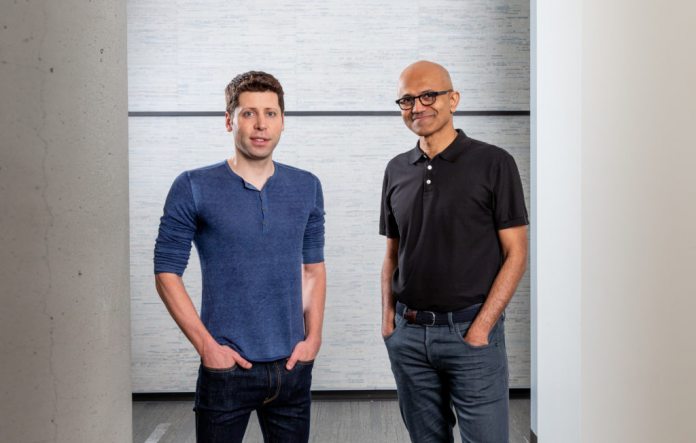OpenAI, the research lab behind the powerful language model GPT-4, has denied rumors that it is developing a more advanced version of the system, known as GPT-5. The company's CEO and co-founder, Sam Altman, claims the company is not currently training GPT-5 and “won't for some time.”
Altman made the statement at an event at MIT, where he discussed the threats posed by AI systems and the need for safety and responsibility.
Last month, Elon Musk – who co-founded OpenAI with Altman – led the FutureOfLife initiative, a project that wants to place more controls on AI development over concerns about the emergence of artificial general intelligence (AGI). An open letter from the project urged all AI developers to cease development of AI potentially more powerful than GPT-4 for at least six months.
Altman was responding to the letter but did not say the company was halting GPT-5 development because of it. In fact, he outright dismissed the letter as “missing most technical nuance” and “sort of silly.” He said that an earlier version of the letter falsely stated that OpenAI is training GPT-5. “We are not and won't for some time,” he added.
Musk left OpenAI before the company became close to Microsoft. He has been critical of the direction the org has taken in recent years. In February, the controversial, Tesla, SpaceX, and Twitter CEO said the outcome for OpenAI was not what he intended for the company:
“Now it has become a closed source, maximum-profit company effectively controlled by Microsoft.”
OpenAI Pleads Deep Commitment to Safety
However, Altman also acknowledged that OpenAI is doing other things on top of GPT-4 that have safety implications. He said that the company is constantly evaluating the potential impact of its work and following best practices for responsible AI development. Earlier this week, the company opened a $20,000 bug bounty program for ChatGPT, the popular chatbot that is powered by GPT-4.
OpenAI has previously said that it takes great care to ensure the safety of its AI. In fact, the company insists it is an advocate of regulated and secure AI models:
“We believe that powerful AI systems should be subject to rigorous safety evaluations,” OpenAI said in a recent blog post. “Regulation is needed to ensure that such practices are adopted, and we actively engage with governments on the best form such regulation could take.”
OpenAI's GPT-4 – which powers services like Microsoft's Bing Chat – is an example of a generative AI. This means it is able to generate content such as text, images, and audio. It is also multimodal, which means it can do several generative tasks, such as create audio, images, and text.
Regulators Circling GPT-4 and Other AI Models
While Altman and OpenAI claim a safe approach, regulators are becoming increasingly concerned about the nefarious potential of AI. The Italian Data Protection Authority has ordered OpenAI to stop providing the chatbot in the country. Germany is also reportedly considering banning ChatGPT and it is likely other countries will follow suit.
In the US, the Treasury Department last week called for AI models to require certification before they can launch in the country.
“It is amazing to see what these tools can do even in their relative infancy,” says Alan Davidson, head of the National Telecommunications and Information Administration, the Commerce Department agency that sent the request. “We know that we need to put some guardrails in place to make sure that they are being used responsibly.”
Microsoft's Support Has Driven OpenAI's Growth
Behind OpenAI, GPT-4, and ChatGPT is Microsoft. These days, Microsoft and OpenAI are synonymous with each other following Redmond's $10 billion investment in the AI researcher. Microsoft takes 49% profit from OpenAI and is leveraging the GPT-4 AI that underpins ChatGPT to drive AI on its own services. Using OpenAI's GPT-4 engine has allowed Microsoft to mainstream AI into its ecosystem, including Bing Chat, Bing Image Creator, Microsoft 365 Copilot, Azure OpenAI Service, and GitHub Copilot X.
OpenAI initially started as a non-profit but has now become for-profit. The company has seen massive growth this year, becoming one of the 50 most visited websites and the fastest ever to have 100 million visitors.
If you are interested in learning more about the technical details, the potential of ChatGPT and what the different GPT models iterations offer, check out this article from Intellisoft.
Last Updated on April 28, 2023 12:48 pm CEST by Markus Kasanmascheff






